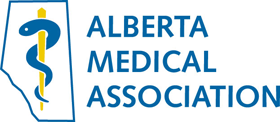Supporting NICU graduate families with playgroups and peer counselling
Emerging Leaders in Health Promotion grant program

Pictured, L to R: Supraja Rengan and Alanna Chomyn
Contributed by: Vanda Killeen | AMA Public Affairs
The ELiHP grant program
The Emerging Leaders in Health Promotion (ELiHP) grant program provides funding to help medical students and resident physicians conceive and implement health promotion projects in support of the development of their CanMEDS/FM core competencies, particularly health advocacy.
Jointly sponsored by the Alberta Medical Association and the Canadian Medical Association and its subsidiaries – MD Financial Management and Joule™ – ELiHP projects facilitate the growth of physician leadership and advocacy skills in a mentored environment while enhancing the wellbeing of the general Alberta population through education, advocacy or community service.
With the goal of supporting families and alleviating the parental anxiety, post-traumatic stress disorder and depression that are common risk factors with pre-term births, then-medical students Alanna Chomyn and her Emerging Leaders in Health Promotion project co-lead, Supraja Rengan, designed a parent-support program comprised primarily of family playgroup sessions and peer support.
“Parents with infants admitted to the neonatal intensive care unit (NICU) frequently report feelings of stress, helplessness and alienation,” explains Alanna. “These adverse parental experiences can have long-term implications for the child and family, potentially interfering with parent-infant bonding, which can lead to attachment issues, and even result in impaired cognitive and behavioral development in the child.”
Throughout winter 2015-16 and through the following spring, summer and fall, Alanna and Supraja developed the NICU Graduate Family Support Program, learning to focus on the elements of the program that were most successful in engaging their target group: families transitioning home after admission into one of Edmonton’s NICUs.
“Initially, our program plan included four components: playgroups, peer counselling, peer support buddy matches and a telephone support service providing access to peer support volunteers,” Alanna explains.
As the project got underway, Alanna and Supraja realized that the initial project plan, which included a complementary buddy program and telephone support program, had been “a bit ambitious” for the first year of the project, particularly given their reliance on a small group of volunteers, and that success would best be achieved by focusing on the popular playgroup sessions and the peer support program in the first year, and striving to incorporate buddy matches and telephone support in the second year.
“We made changes as we executed the project,” says Supraja. “These changes were made partly due to feasibility, given the small group of individuals working on this project, as well as to the success of our playgroups and our desire to optimize this aspect of our project prior to expanding.”
The goal of the 19 playgroup sessions was to provide pre-term and medically complex children with a safe and supportive environment in which to play. “In total, over 20 families attended our playgroups,” Alanna notes, “and the feedback was positive.” While some attended regularly, others attended less frequently or only once. “Attendance was difficult to predict,” admits Alanna, adding that they were able to “reach a much greater population of families with our promotional events and through our Facebook group.”
Hopeful that their project will continue, the project partners are grateful for the health promotion advocacy skills they acquired through this project. “I think a particular strength of this project was collaborating with parents and health care providers to build a community program and fill a service gap,” says Alanna. “I also became skilled at educating about the social and emotional implications of pre-term birth on parents and families and learned about the power of peer support.”
“Along with me and Supraja, the rest of our project group volunteers – a small group of medical students – also benefitted from this experience, as we planned, organized, promoted and facilitated playgroups and designed the program to meet the needs of our target population.”
In addition to their team of medical students, Alanna acknowledges the valuable guidance and support of the involved parents and pediatricians, including Katharina Staub (Canadian Premature Babies Foundation), Jen Hanrahan and Caitlin Nicholson (moms), and ELiHP project mentor Dr. Jennifer Toye (Edmonton-based neonatologist).
Dr. Toye’s strong interest, experience and training in public health and social determinants of health proved incredibly helpful, along with her extensive work with families directly in the NICU and during follow-up. Her experience and position “gave us a foothold with NICUs across the city, introducing us to important contacts and generally helping keep us on track,” Alanna comments. “She’s collaborative and has a wealth of knowledge that we relied on, including other programs internationally that we could model our project after.”
In her final report on her project, Alanna concluded, “I’m excited and optimistic about what our project will achieve for Alberta families, and I believe that the leadership opportunities and skills, and the opportunity to practice health advocacy, will have a long-lasting impact on the young learners and physicians involved with this project.”
The NICU Graduate Family Support Program is still active in Edmonton and hosts regular playgroups throughout the year. More information about upcoming sessions can be found at facebook.com/NICUPlaygroup.
